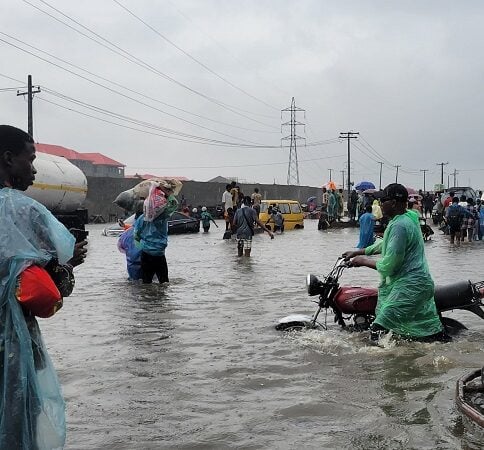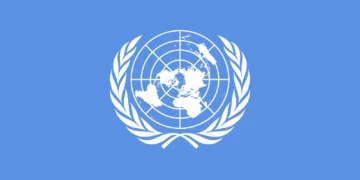Year after year, as Nigeria enters its rainy season, the predictable twin disasters of flooding and disease outbreaks return with devastating consequences. This year is no different. The Nigeria Centre for Disease Control and Prevention (NCDC) has issued a nationwide health alert on the growing threat of cholera, yellow fever and dengue fever across several states already grappling with intense rainfall and widespread flooding.
According to the NCDC, as of June 29, suspected cholera cases had been reported in 34 states, with Zamfara State alone accounting for nearly one-third of the total. Confirmed outbreaks of yellow fever have also been recorded in six states, while Edo State has reported dengue fever cases. These outbreaks come amid impact-based forecasts by the Nigerian Meteorological Agency (NiMet), which identified Sokoto, Kaduna, Zamfara, Yobe, and other states as facing heightened flood risks through July. The link between flooding and the spread of disease is neither new nor surprising. Yet, the country continues to approach these seasonal threats with reactive measures rather than proactive policies.
Cholera, for instance, is a waterborne disease whose spread is amplified by poor sanitation, contaminated drinking water and inadequate drainage systems — conditions that are worsened by flooding. Similarly, stagnant water serves as a breeding ground for mosquitoes that transmit yellow fever, dengue and malaria. It is particularly worrying that these diseases are thriving in an era where they should have been largely contained through vaccination, public enlightenment, and basic sanitation services.
What is more troubling is that despite repeated warnings from public health authorities and meteorological agencies, both federal and state governments appear to be caught flat-footed, year after year. The outbreaks we are witnessing today are not natural disasters — they are the consequence of policy inertia, underinvestment in critical infrastructure, and the continued disregard for preventive health measures.
The NCDC’s response, including the deployment of outbreak response teams, distribution of medical supplies, and coordination with state agencies, is commendable. But these are stop-gap interventions. They address symptoms, not the underlying cause. In the absence of a coordinated national sanitation programme, safe drinking water infrastructure, and sustained community mobilisation, the recurrence of disease outbreaks is almost guaranteed.
It bears repeating that the health implications of flooding are far-reaching. Children under five are particularly vulnerable to waterborne infections. Pregnant women, the elderly, and people with compromised immunity are at heightened risk. Furthermore, the confusion between malaria and dengue fever — both of which present with similar symptoms — complicates diagnosis and treatment, especially in rural clinics that lack proper diagnostic tools.
We believe that this situation calls for more than temporary containment measures. There is an urgent need for integrated flood and health preparedness strategies. This includes strengthening Nigeria’s early warning systems, enforcing urban planning laws, upgrading public drainage networks, and investing in water, sanitation and hygiene (WASH) facilities in vulnerable communities. More so, the yellow fever outbreaks point to gaps in routine immunisation coverage.
The relevant authorities, particularly the National Primary Health Care Development Agency (NPHCDA), must accelerate vaccination efforts in at-risk areas before the situation spirals further out of control.
The role of state and local governments is also critical. Health and sanitation are primarily subnational responsibilities. State ministries must treat this crisis with the seriousness it deserves by activating emergency health committees, deploying resources to high-burden communities, and conducting aggressive public awareness campaigns.
It is disheartening that many state governments continue to prioritise showpiece infrastructure projects while neglecting basic public health investments that directly affect citizens’ lives.
Beyond emergency response, there is a compelling case for public accountability. How many states have prepared flood contingency plans this year? How many have mapped out cholera hotspots? What steps have been taken to pre-position drugs, vaccines, or water treatment kits in high-risk communities? These are questions the public has a right to ask — and government has a duty to answer.
As the flood season continues, the nation must act with a renewed sense of urgency. We cannot afford to normalise yearly outbreaks of cholera or yellow fever as unavoidable consequences of the rains. They are not. They are the results of poor planning, environmental degradation, and official indifference. If we must prevent a repeat of this annual tragedy, then our leaders must move beyond rhetoric to results.
The time has come for Nigeria to confront the health consequences of its failing infrastructure and weak disaster preparedness. Millions of lives are at stake. The NCDC has sounded the alarm. The onus is now on the government — at all levels — to respond with foresight, firmness, and sustained action.





